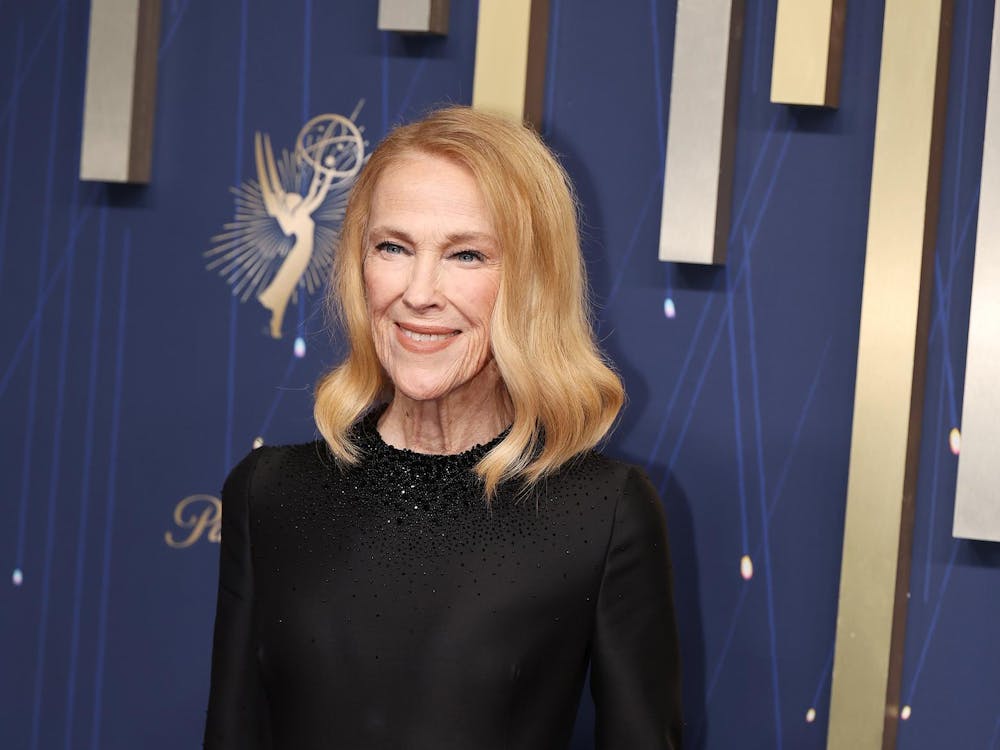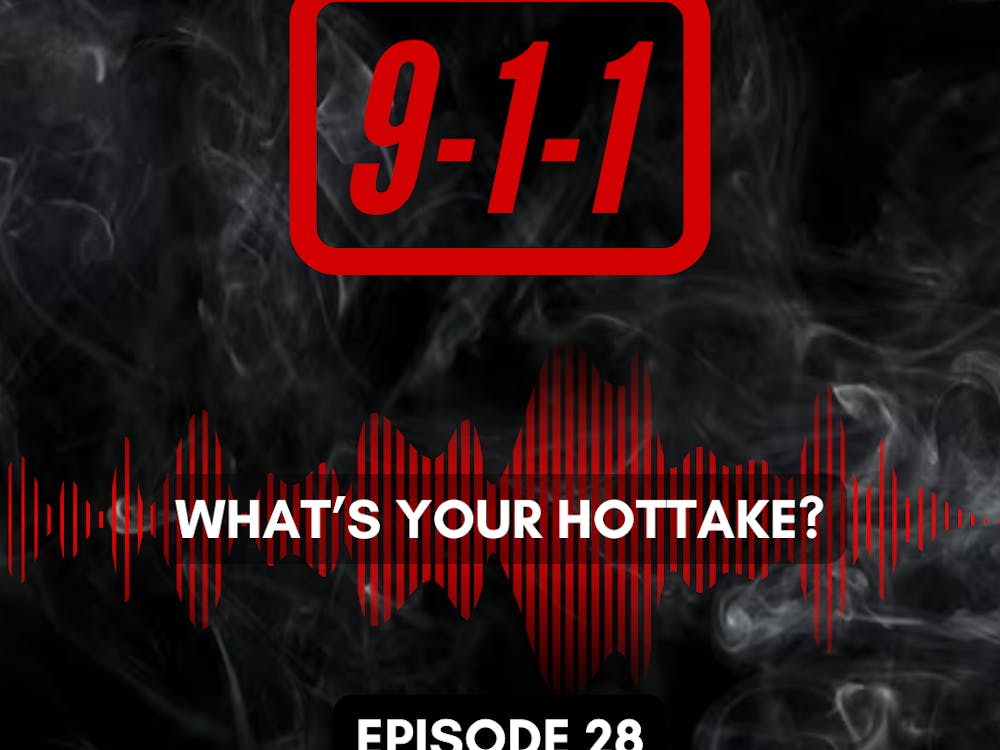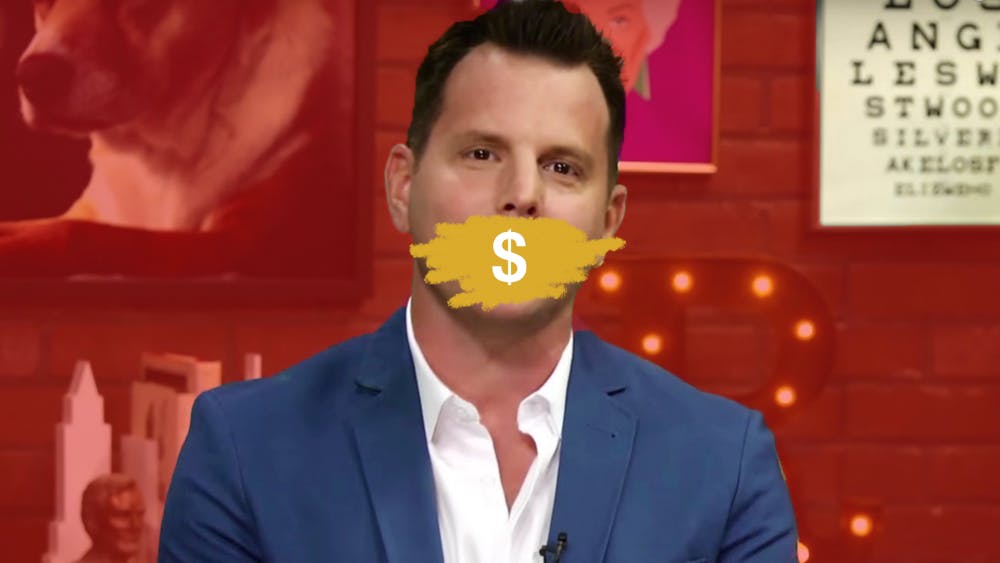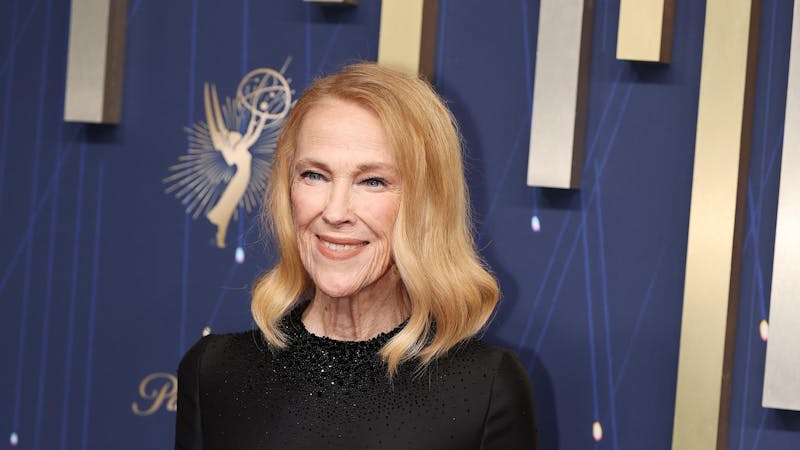The opinions and views expressed in State of YouTube are those of the authors and do not reflect the opinion of Byte or Byte's editorial board.
On Monday, Jan. 15, 2018, Martin Luther King Jr. Day, CNN tweeted a photo of Rev. Dr. King claiming, among other things, “he was a socialist before it was cool.” Some claimed that this was accurate; some believed this was a stretch. Others, regardless of whether or not Dr. King was a socialist, believed it was inappropriate for a news outlet such as CNN to promote an ideology such as socialism as “cool,” claiming that it revealed a bias in reporting during this scandalous time of “fake news.” Among them was Dave Rubin, who used his monetized YouTube channel to issue a direct message arguing “Socialism Isn’t Cool.” Shortly afterwards, Dave discovered that YouTube had demonetized his video, citing it was “not suitable for most advertisers” without explaining why. Furious as well as curious, Rubin then uploaded a short video titled “Capitalism Isn’t Cool” and found that this video stayed monetized.
Now, Dave Rubin is not a typical conservative. One of the former hosts of The Young Turks, Dave claims to be a “classical liberal” who left the liberal network and the general modern movement altogether because of the “lazy thinking of progressives.” Rubin now hosts his own show on YouTube called the Rubin Report, where he interviews multiple people of multiple viewpoints on multiple topics in an effort to shine light on the type of discussion and discourse not often found in the short and segmented format of mainstream media outlets like CNN, MSNBC, or Fox News. He has, however, admitted that he enjoys the company of right-leaning thinkers more than those on the left, even if he disagrees with their viewpoints, if only because they are more willing to sit down and have an honest and open conversation. The “modern regressive Left,” as he claims, is more focused on silencing those viewpoints they disagree with. The incident with YouTube, one of many similar occurrences, serves to prove his point.
Dave Rubin isn’t the only victim of this supposed oppression of free speech. Prager University, which hosted Dave’s video “Why I Left the Left,” is currently in the process of suing Google, YouTube’s parent corporation, for placing over three dozen of their educational videos on “Restricted” mode, cutting all monetization and prohibiting viewers under 18 or at some schools and universities from viewing said content. During the State of the Union in January, the Daily Wire streamed the speech with commentary before and after, discussing President Trump’s first year in office, modern conservatism, and where to purchase the best foreign cigars. The livestream, which also aired on Facebook and the Daily Wire website, was taken down on YouTube due to a copyright claim issued by Turner Broadcasting, owner of CNN. The Kicker? Daily Wire was using publicly owned and funded C-SPAN for their stream of the speech, not CNN.
Now, before I go further, I want to make clear that this isn’t a “Mainstream Media is Biased!” piece or even a “Regressive Leftists Hate the Truth!” piece. I don’t care what side of the political spectrum you fall on, and I respect your right to voice your opinion. In fact, that is the exact purpose of this piece: to examine freedom of speech in the ever-changing media and political landscape, and whether or not YouTube can—and should—be allowed to make these decisions for their platform, at the expense of viewers and content creators alike. I will try my best to look at both sides of the argument, and then give my opinion at the end (although you can probably guess what I think already).
ON THE ONE HAND: The case for YouTube
One of the first arguments made for YouTube’s ability to monetize, restrict, or take down any content is their position as a private corporation. This is a fair argument, and the one I personally believe will win out against the Prager University lawsuit. Google is not required by law to provide a neutral stance for anything and has shown to have a left-leaning stance in multiple other areas outside of the video sharing site. The thinking goes: if traditional outlets like CNN, Fox News, the Wall Street Journal, or the New Yorker can all have pretty obvious bias towards one political leaning or the other, new media sites like YouTube, Facebook and Twitter should be allowed to as well. In fact, many conservatives are against government regulation or interference in almost any form, so why would they demand the government step in and intervene with YouTube’s right to private ownership and operation? It isn’t exactly fair, but neither is life, so we the people just need to deal with it.
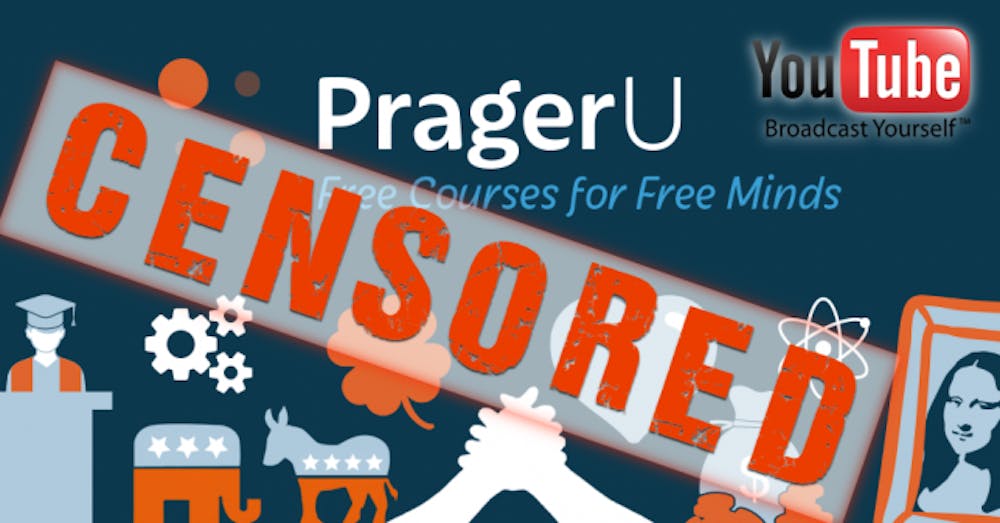
Image from Capital Research Center
Another argument, which has a bit murkier reasoning, is that YouTube isn’t technically censoring conservative voices, which is questionable depending on how far you extend your definition of censorship. In most of the cases I cited above, YouTube hadn’t actually taken down content. Dave Rubin’s videos concerning capitalism or socialism remained on the site, although multiple others since then have also been demonetized. Prager University’s videos are still somewhat accessible to part of the population, and many of their other videos haven’t been restricted whatsoever. The Daily Wire incident is an exception, although the perpetrator was more CNN issuing the false copyright claim in the first place. And I won’t be the first to tell you the…interesting relationship YouTube has with internet copyright laws.
There is also the issue with the purposes of monetization, which YouTube has also come under fire for recently. YouTube technically doesn’t owe anyone any money off of their videos and has used demonetization as an incentive for regular creators to update content. Limiting advertising and monetization can hurt independent channels, forcing them to possibly quit altogether because the expenses outweigh potential income. Rubin has placed increased emphasis on his Patreon in order to sustain his channel after recent demonetization hits. Prager University receives donations as a non-profit organization but will still see limited funds from restricted videos. The Daily Wire has an independent site with advertising and podcast subscriptions, so they are less affected by this issue. Other conservative channels, such as Louder with Crowder, FreedomToons, and Matt Christansen all have outside funding sources to support them instead of relying on YouTube for video income.
The argument that I personally dislike, mostly due to its irrationality, is the argument that YouTube not only has the right, but the obligation, to restrict conservative voices. This belief is shared by those who claim orthodox Jew Ben Shapiro is a Nazi, or that Trump is LITERALLY Hitler, or that anyone to the right of Martin O’Malley is white supremacist. This demonizing of conservative politics is, admittedly, part of why we are struck with Trump, and displays the oppressive viewpoints of a vocal minority on the modern Left, which is what drives those like Dave Rubin away from progressivism. This “heckler’s veto” is already winning out on some college campuses, where violent protesters will terrorize a campus for hosting a right-leaning speaker in order to prevent speech from occurring. It is my hope that this doesn’t happen on the internet and that instead we can allow others to voice different opinions from our own.
ON THE OTHER: The case against YouTube
Legally speaking, there is not much that can be done to argue against YouTube. The only law that came close was the Fairness Doctrine, which was imposed in 1947 by the FCC and subsequently revoked in 1987—by Republicans under Reagan, no less—for supposedly violating the First Amendment. I agree with this, because I am uncomfortable with a government who can tell private organizations how to run their business or what types of speech should be allowed/enforced. I would, just like Dave Rubin, prefer the free market solution. YouTube, as a business, has the freedom to operate independently and respond to consumer demand. If consumers overwhelmingly prefer what YouTube is currently doing with their censorship and monetization policies, they can continue to operate as such. If so, a secondary site may pop up as competition, with the emphasis on neutrality and openness for creators. Some have argued that Twitch or Vimeo may provide this or that tech giant Amazon could create a popular platform to rival Google. However, YouTube could also sense consumer frustration and adjust their business practices to appeal to this displeased subset and allow for less restriction in order to remain top dog in the video sharing world. This option seems less likely to occur but still preferable to government oversight of the internet.

Image from Linus Tech Tips
Another argument against YouTube is that they should be more transparent about their monetization or restriction policies. It is entirely possible that there are outside factors in these videos that prompted YouTube to act how they did, instead of just a political bias (although their silence on the matter seems to indicate otherwise). This seems to be an overarching concern for YouTube, especially after the infamous Logan Paul scandal. YouTube has a right to respond to controversial or inappropriate material on their website, which is the entire reasoning behind Restricted videos in the first place. However, the lack of transparency for why some videos are restricted (Prager University), some are demonetized (Rubin Report), and some are left alone for too long (Logan Paul) has led to the creation of this controversy.
Finally, the most relevant take in my opinion is the ethical argument. Yes, YouTube has every right to treat conservatives like dirt on their site—but should they? After all, YouTube likes to herald itself as the most popular platform for open sharing of video content, especially since their first motto was “Broadcast Yourself.” One of the praises of the internet is that it allows for an open environment of discussion and media sharing unrestricted by the time or political restrains of cable or print news. If YouTube wants to keep this image afloat, then they should focus more on fair treatment of all viewpoints.
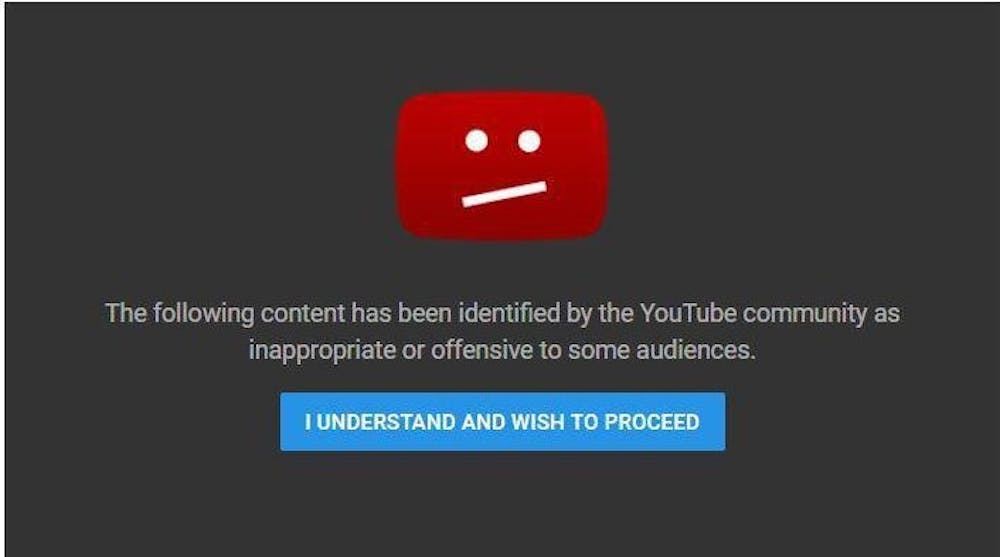
Image from The Sun
YouTube has every right to censor or restrict videos as necessary and even an obligation when those videos are inappropriate or offensive (*cough* Logan Paul *cough*). However, that should not extend to political content creators on the right or the left. I wouldn’t like a reversed situation, where left-wing voices were suppressed (and it’s one of my main criticisms of outlets like Fox News). I’d prefer an open marketplace of ideas, where reason, logic and facts win out over shouting an opponent into submission. Do I think that Prager University’s lawsuit should or will result in government intervention? No. Is YouTube likely to change its course by creator persuasion alone? I’m not sure; after all, YouTube has also managed to anger the LGBT+ community for similar circumstances. However, I think that this is an important topic to consider, especially as the Internet becomes more and more central in our daily lives. Do we want to live in a filter bubble, where opinions we don’t agree with are silenced or hidden away from us? I don’t, and I hope I’m not the only one.
Sources: YouTube, Twitter, Wikipedia, Byte, The Wall Street Journal, The Week, Patreon, The Huffington Post, Engadget, Student News Daily
Images: The Sun, Linus Tech Tips, Capital Research Center
For more entertainment related content, visit us at Byte Bsu!


